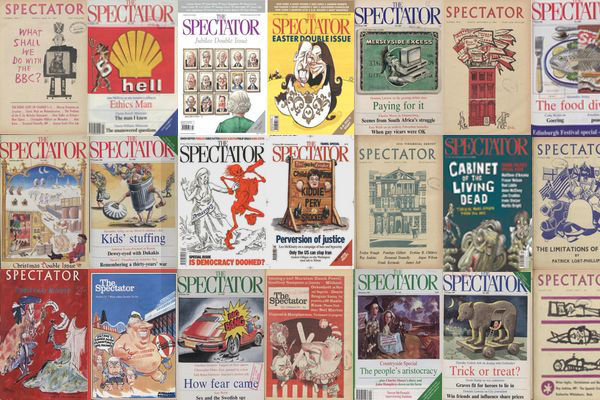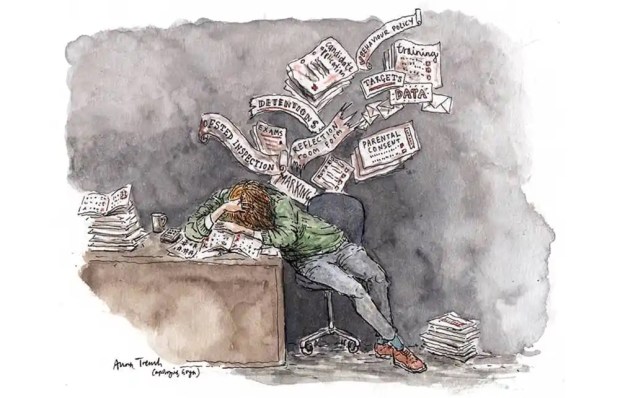Poor treatment
Sir: Jane Kelly’s article (‘No tea or sympathy’, 2 August) on the lack of empathy and emotional support shown to patients is humbling. It is also worth noting that showing patients a lack of compassion has wider consequences. We know for instance that around 13,000 cancer patients feel like dropping out of treatment each year because of how they are treated by staff. In other words, it could risk their lives.
It is unfair to say, however, that the nurses who used to be ‘angels’ have been replaced by the ‘mechanistic bureaucrats’ of assistants. Healthcare assistants often have the toughest time of all healthcare professionals, not only because of their busy workloads, which Ms Kelly highlights, but also because they often receive little training and feel undervalued and are without a voice. If we want to see genuine, widespread change, we need to see the government fully committing to creating a compassionate NHS. The upcoming general election is the perfect opportunity to do this. Political parties should commit, in their manifestos, to ensuring that all patients are treated with the highest levels of respect and that staff are supported to deliver this.
Ciarán Devane
Chief Executive, Macmillan Cancer Support, London SE1
Bring back Matron
Sir: Regarding Jane Kelly’s article, I am among the last generation trained as a Nightingale nurse in the 1950s. The recruitment process was highly selective. Individuals were handpicked for their compassionate attitudes. It was consistently emphasised throughout our training that the patient’s welfare was paramount. If you were short with a patient, you had the worst fate of all — being sent to see Matron.
There needs to be a return to a stricter discipline, with accountability held by one individual and not a committee ‘team’.
Angela Craig
Twyford, Winchester, Hants
A dons’ league table
Sir: Miriam Gross raises an interesting point in her diary reference to Richard Evans’s article on Michael Gove, when she asks whether Sir Richard was ever trained to lecture (2 August).
Since retirement I have had the leisure to listen regularly to Melvyn Bragg’s In Our Time on Radio 4. Sadly, I have been struck again and again by the lacklustre delivery of many of the nation’s academics, especially of the arts and humanities dons, as well as by their tendency to court spurious complexity when possible. By contrast, the scientists are often robust communicators with an admirable ability to find simple analogies for concepts of mind-bending sophistication. They also tend to be kinder to Lord Bragg in his senior moments.
If these are a fair representation of British academia, then we do have gems, but also rather a lot of dross. Perhaps the time has come for our students, now paying so handsomely for university education, to be given the opportunity of providing more serious feedback on the performance of their mentors.
Dr D.J. MacInnes
Holm, Orkney
Whose shotgun?
Sir: In response to Charles Moore’s request for facts on the Great War, I inherited my grandfather H.E.A. Reynolds’s Royal Flying Corps logbook and I thought your readers may be interested in the following.
After a total flying time of 15hours 15 minutes dual and 49 hours solo he was sent to France to fight.
He was trained at Thetford, and presumably due to the proximity to the family farm at Hoxne in Norfolk, a simple entry on 22 March 1918 reads ‘Went Home’. The flight took 85 minutes.
A further entry on 2 April 1918 reads ‘Aerodrome and Home’, but this time it was with his commanding officer to go shooting. This was such a success that the CO said: ‘Angus, that was so much fun that if I don’t come back from a sortie, I want you to have my shotgun.’ This unfortunately came to pass, and said shotgun is now in my possession. The initials on the case are G.H.E. and I would be very interested to hear from any Spectator reader who lost a forebear in the RFC with those initials.
Bill Thomas
Lusaka, Zambia
On human shields
Sir: I spent seven months with the British Army in Basra, coming under daily rocket attacks from weapons fired from residential areas. During that time, I don’t recall anyone even suggesting that we simply return fire. To do so would have risked harming innocent civilians.
To accuse all of Israel’s critics of being motivated by anti-Semitism as Melanie Phillips did (‘Stand up for Britain’s Jews’, 2 August) is simply preposterous. Using human shields is surely less immoral than blindly returning fire despite knowing that human shields are in place.
Tom Drife
London SW11
A bit loose?
Sir: I don’t usually expect to read about anal sex and Brazilian waxes in The Spectator, but then as an octogenarian I must expect progress to leave me behind, so I’m not complaining. But would it be curmudgeonly of me to point out that until I read Cosmo Landesman’s article (‘Porn-again parents’, 2 August) I thought only Americans spelt ‘loses’ with two ‘O’s?
John Forster
Bedford
Definition games
Sir: Simon Barnes is nearly correct that proper sport should have an element of physical risk (Sport, 26 July), but he did not mention the old distinction between a sport and a game. A sport is something a gentleman can do while smoking. Hence fishing, shooting and even golf are sports, but football and tennis are games.
Johnny Leavesley
Alrewas, Staffordshire
Got something to add? Join the discussion and comment below.
Get 10 issues for just $10
Subscribe to The Spectator Australia today for the next 10 magazine issues, plus full online access, for just $10.
You might disagree with half of it, but you’ll enjoy reading all of it. Try your first month for free, then just $2 a week for the remainder of your first year.













Comments
Don't miss out
Join the conversation with other Spectator Australia readers. Subscribe to leave a comment.
SUBSCRIBEAlready a subscriber? Log in